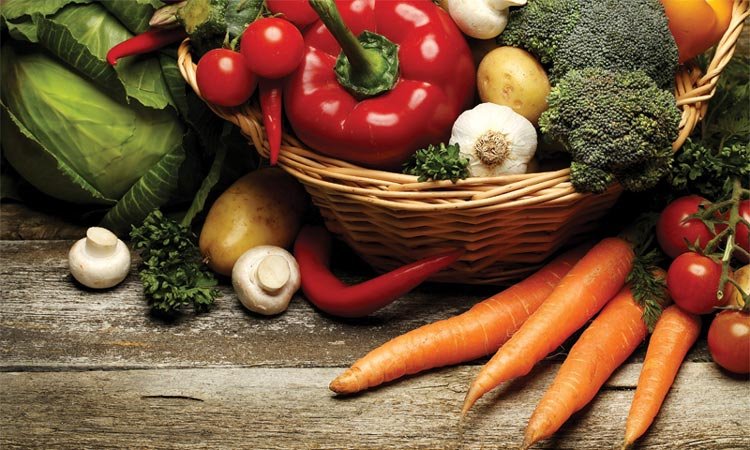Food is one of the most basic needs of humanity, so it makes sense that food would make an early entrance in the account of God’s dealings with us. In Genesis, plants and trees are given for food: “Every seed-bearing plant … Every tree that has fruit with seed in it. They will be yours for food.” 1
COOKING
From the master chef to the housewife preparing a family meal to the student heating a pack of instant noodles for lunch, food preparation is part of our everyday lives. In the cultural milieu of the Bible, this was usually a job for women, unless the food was for ceremonial purposes.
Sarah prepared a meal for the angels visiting her husband Abraham, 2 and Martha was busy preparing food for Jesus while her sister Mary sat and listened to Him. 3
On one occasion, Jesus Himself cooked: “Then, as soon as [the disciples] had come to land, they saw a fire of coals there, and fish laid on it, and bread. … Jesus said to them, ‘Come and eat breakfast.’ … Jesus then came and took the bread and gave it to them, and likewise the fish.” 4
Reference is sometimes made to particular ingredients or spices: “Can flavorless food be eaten without salt? Or is there any taste in the white of an egg?” 5
There’s even the occasional recipe: “Heap on the wood, kindle the fire; cook the meat well, mix in the spices, and let the cuts be burned up.” 6
FEASTING
There’s nothing quite like getting together with friends over a delicious meal. The menu for a three-day feast celebrating King David’s accession included bread and figs, raisins, oil, wine, oxen, and sheep. 7
Members of the early church enjoyed their fellowship and meals together: “Breaking bread from house to house, they ate their food with gladness and simplicity of heart.” 8
Fast forward to the joyous climax of the Bible, and there’s another banquet to which all believers are invited: “Blessed are those who are called to the marriage supper of the Lamb!” 9
SHARING
Jesus showed concern for the everyday needs of those around Him. When His followers wanted to send the crowds away to find food, He insisted: “They do not need to go away. You give them something to eat.” 10
Jesus shared meals with His followers both before His death and after His resurrection. 11
Sharing food with others is part of our responsibility: “The Lord … loves the stranger, giving him food and clothing. Therefore love the stranger.” 12
Jesus told us that when we give to the hungry, we are giving to Him: “I was hungry and you gave me something to eat, I was thirsty and you gave me something to drink … Whatever you did for one of the least of these brothers and sisters of mine, you did for me.” 13
SWEETER THAN HONEY
God’s Word itself is likened to spiritual food: “How sweet are Your words to my taste, sweeter than honey to my mouth!” 14
Jesus was quoting the Old Testament when He said: “No one can live only on food. People need every word that God has spoken.” 15
The prophet Jeremiah certainly enjoyed his spiritual food: “When your words showed up, I ate them—swallowed them whole. What a feast!” 16
GOD’S GIFT
“Life is more than food,” 17 yet God knows we need it: “The eyes of all look expectantly to You, and You give them their food in due season.” 18
Even the enjoyment of food is another of God’s gifts: “People should eat and drink and enjoy the fruits of their labor, for these are gifts from God.” 19
No matter who we are or where we live, food is something that matters to each of us. We grow or buy it, we prepare it, we eat it. And while we may not connect so easily with the distant history and heroes, miracles, and unearthly events of the Bible, when it comes to food—that’s something we can understand. It’s on our level and relevant, just as God wants to be in our lives. He cares about satisfying our hunger, both literally and spiritually. 20 Quite a thought to digest.
* * *
Men turn this way and that in their search for new sources of comfort and inspiration, but the enduring truths are to be found in the Word of God.—Queen Elizabeth The Queen Mother (1900–2002)
The storehouse of God’s word was never meant for mere scrutiny, nor even primarily for study, but for sustenance.—Vance Havner (1901–1986)
The Bible calls itself food. The value of food is not in the discussion it arouses but in the nourishment it imparts.—William Houghton (1887–1947)
- Genesis 1:29 NIV ↑
- See Genesis 18:6–8. ↑
- See Luke 10:40. ↑
- John 21:9,12–13 ↑
- Job 6:6 ↑
- Ezekiel 24:10 ↑
- See 1 Chronicles 12:38–40. ↑
- Acts 2:46 ↑
- Revelation 19:9 ↑
- See Matthew 14:15–16. ↑
- See Mark 14:12–25 and Luke 24:28–31. ↑
- Deuteronomy 10:17–19 ↑
- Matthew 25:35,40 NIV ↑
- Psalm 119:103 ↑
- Matthew 4:4 CEV ↑
- Jeremiah 15:16 MSG ↑
- Luke 12:23 ↑
- Psalm 145:15 ↑
- Ecclesiastes 3:13 NLT ↑
- See Matthew 5:6. ↑
